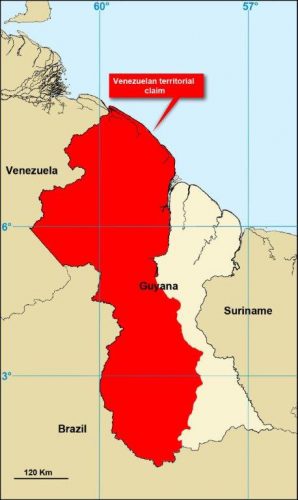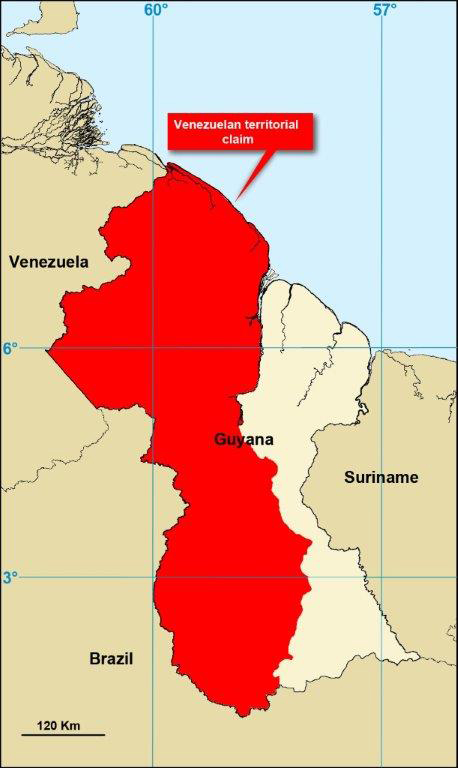Guyana’s government today announced its firm rejection of an agreement by Venezuela’s government and the joint opposition to press their longstanding claim to nearly three-quarters of its territory.
“That agreement is an overt threat to the sovereignty and territorial integrity of Guyana,” the government said in a statement issued by the Foreign Affairs Ministry in response to the accord.
“Guyana cannot be used as an altar of sacrifice for settlement of Venezuela’s internal political differences. While the Government of Guyana welcomes domestic accord within Venezuela, an agreement defying international law and process is not a basis for mediating harmony,” it added, while noting that the controversy between Guyana and Venezuela is properly before the International Court of Justice and will remain there for peaceful resolution.
Venezuela’s government and opposition representatives reached partial agreement on Monday during talks in Mexico City. Venezuela has sought to claim most of Guyana’s Atlantic waters, which includes the offshore Stabroek Block, where ExxonMobil is leading oil production.

Venezuelan prosecutors have previously accused Opposition Leader Juan Guaido of treason for allegedly plotting to hand over Essequibo to multinational companies.
Previous negotiations in the Dominican Republic in 2018 and Barbados the following year failed to resolve the crisis that has marked Maduro’s eight-year rule, AFP said.
This is not the first time that the two sides have raised the Guyana controversy as a means of finding common ground in their otherwise intractable domestic differences. Several years ago under Vatican mediation the matter was also raised.
Observers have pointed out that this week’s stance of the Venezuelan government and opposition is archaic and overtaken by the fact that the controversy is before the International Court of Justice (ICJ) for final settlement.
In what is seen as a major victory for this country in its bid to definitively settle a decades-old controversy, the ICJ last December ruled that it has jurisdiction to determine the validity of the 1899 Arbitral Award on the frontier between Guyana and Venezuela
The Court – the principal judicial organ of the United Nations – also declared that it could address the related question of the definitive settlement of the land boundary controversy between the two territories.
Venezuela has chosen not to participate in the case.
Over the years Guyana has gained increasing international support for its position.






